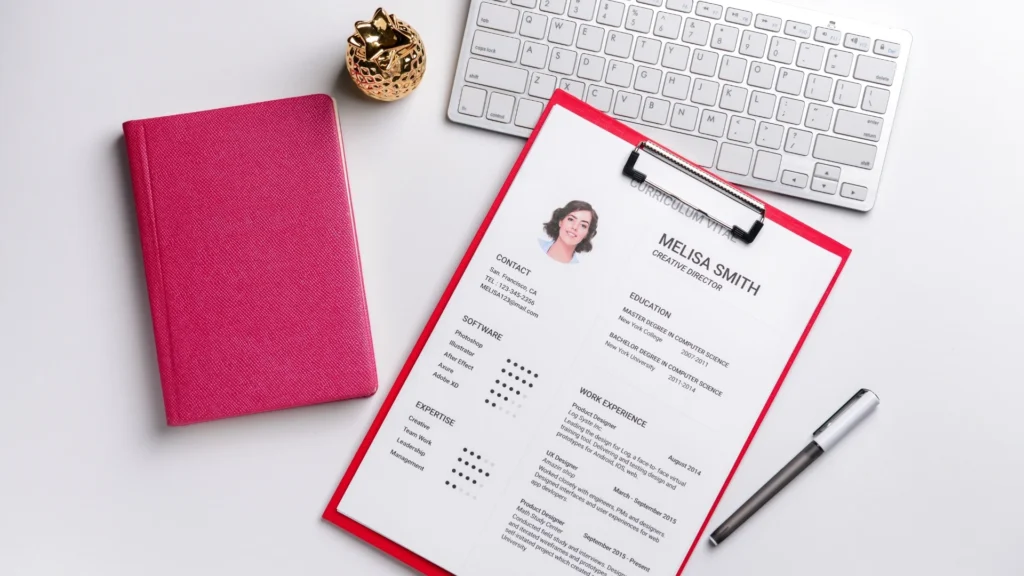Seeking career opportunities? Learn which resume phrases to steer clear of. Optimize your job application with smart tips from industry professionals. In the ever-evolving job market, standing out as a candidate is more challenging than ever. As HR professional, I’ve had the unique opportunity to observe what distinguishes a memorable candidate from the rest.
Your resume is often the first impression you make on potential employers, and it’s crucial to make every word count. Through my experience, I’ve identified common pitfalls and phrases that many job-seekers fall into, which can inadvertently weaken their resumes.
In this article, I’ll share exclusive insights into the language and strategies that can elevate your resume from good to great. By avoiding certain phrases and focusing on impactful, quantifiable achievements, you can craft a resume that truly reflects your capabilities and potential.

Let’s dive into the nuances of resume writing and explore how you can avoid common mistakes to present a compelling narrative of your professional journey. Whether you’re a seasoned professional or entering the job market for the first time, these tips will help you navigate the path to your dream job with confidence.
As HR professional, I’ve seen thousands of resumes and have noticed patterns that can make or break a candidate’s chances. Today, I want to share some insider tips to help job-seekers stand out. Specifically, I’ll highlight three phrases to avoid in your resume.
Discover top resume pitfalls! Learn how to avoid common phrases on your job application. Elevate your chances of landing your dream job today with the 10 tips.
Outdated Phrases to Eliminate from Your Resume
Eliminate outdated phrases from your resume to enhance its impact. Avoid clichés such as “References available upon request” or “Responsible for” as they add no value.
Replace these with concise statements that demonstrate your skills and achievements. Streamline your language for a more modern and engaging resume.
Stand out from the competition by showcasing your accomplishments effectively. Remember, recruiters value clarity and specificity in a resume.
1. “Responsible for…”
This phrase is often overused and doesn’t convey the impact you had in your role. Instead of stating what you were responsible for, focus on what you achieved. Use action verbs and quantify your results.
For example, instead of saying “Responsible for managing a team,” say “Led a team of 10 and increased productivity by 20%.”
2. “Worked on…”
Similar to “responsible for,” this phrase is vague and doesn’t showcase your contribution. Be specific about your role in the projects you worked on. Highlight your individual contributions and the outcomes.
Replace “Worked on sales strategy” with “Developed and implemented a new sales strategy that boosted sales by 30%.”
3. “Familiar with…”
This phrase suggests a superficial knowledge level. If you’re skilled in a particular area, be confident and state it clearly.
Use terms like “proficient in” or “expert at” if they truly reflect your level of expertise. Instead of “Familiar with Python programming,” opt for “Proficient in Python, developed a data analysis tool that improved reporting efficiency by 40%.”
Remember, your resume is your personal marketing document. Every word counts, and clarity, specificity, and impact are your best tools to ensure your resume stands out. Avoid these common phrases, and you’ll be one step closer to landing your dream job.

4. “Team Player”
While being a team player is important, this phrase has become cliché and doesn’t differentiate you. Instead, provide examples of how you’ve collaborated to achieve goals.
For instance, “Collaborated with cross-functional teams to launch a successful marketing campaign, resulting in a 25% increase in leads.”
5. “Hard Worker”
This is another overused term that lacks specificity. Employers expect all candidates to be hard workers. Highlight how your hard work translated into success.
Replace “Hard worker” with “Dedicated 50+ hours a week to develop a new tracking system that reduced error rates by 15%.”
By avoiding these phrases and focusing on specific, quantifiable achievements, you’ll present a compelling narrative of your professional journey.
Your resume will not just list your job duties; it will tell the story of your career and the value you bring to a potential employer.
6. “Experienced in…”
This phrase is often too broad and doesn’t communicate the depth of your experience. Instead, focus on specific skills or projects that demonstrate your expertise.
For example, “Leveraged 5 years of experience in digital marketing to increase online engagement by 40%.”
7. “Objective”
The objective statement is outdated and can take up valuable space on your resume. Modern resumes focus on a summary or profile that highlights what you bring to the table.
Replace the objective with a professional summary that aligns with the job you’re applying for.
For instance, “Digital marketing specialist with a track record of developing successful campaigns that increase brand awareness and sales.”

8. “Expert”
Be cautious with the term “expert,” as it sets high expectations. Only use it if you truly possess deep expertise in a field. Instead, demonstrate your expertise through examples of your work.
For instance, “Applied expert-level knowledge in machine learning to develop algorithms that improved data processing speeds by 50%.”
9. “Successful”
This term is subjective and doesn’t convey the extent of your success. Quantify your achievements to show what “successful” means in your context.
Replace “Successful project management” with “Directed a project team that delivered three major software releases on time and under budget, resulting in a 20% increase in customer satisfaction.”
10. “Detail-Oriented”
While attention to detail is a valuable skill, the phrase “detail-oriented” is overused and lacks impact. Demonstrate your attention to detail through specific examples.
Instead of simply stating you are “detail-oriented,” describe a situation where your attention to detail was critical.
For example, “Employed meticulous attention to detail to audit and reconcile financial statements, identifying discrepancies that saved the company $10,000.”
This emphasizes the importance of showing, not just telling, your skills. By providing concrete examples of how your attention to detail has made a difference, you give potential employers a clear picture of the value you can bring to their team.
Remember, your resume is a tool to showcase your achievements and the unique qualities that make you the ideal candidate for the job.
Enhancing Your Resume for Success
A strong resume is your key to unlocking the door to that dream job. Here are some tips to enhance your resume and make it shine:
- Tailor it: A one-size-fits-all approach doesn’t work for resumes. Read the job description carefully and identify the skills and experience they are looking for. Use those keywords throughout your resume.
- Quantify your achievements: Don’t just list your responsibilities. Instead, focus on your accomplishments and quantify them whenever possible. Increased sales by 15%? Streamlined a process that saved the company 20% on costs? Include these details with numbers to showcase your impact.
- Action verbs are your friends: Use strong action verbs to describe your experience. Instead of saying “responsible for,” use verbs like “spearheaded,” “managed,” or “developed” to make your contributions stand out.
- Highlight relevant skills: Don’t just list every skill you possess. Focus on the skills that are most relevant to the job you’re applying for. Include hard skills (technical proficiencies) and soft skills (communication, teamwork).
- Keep it ATS-friendly: Many companies use Applicant Tracking Systems (ATS) to scan resumes. Use relevant keywords from the job description throughout your resume to ensure it passes the initial screening.
- Format for readability: A visually appealing and well-formatted resume is easier to read and navigate. Opt for a clean, professional layout with clear headings and bullet points [1].
- Proofread meticulously: Typos and grammatical errors can create a negative impression. Proofread your resume carefully, and consider having someone else review it for any mistakes.
These are some of the key ways to enhance your resume and increase your chances of landing that interview. There are many online resources available to help you with resume writing. You can also consider seeking professional help from a resume writer or career counselor.
FAQ about Tips for Job Seekers to Avoid These Phrases in Resumes
Q1: How often should I update my resume?
A: It’s best to update your resume regularly, at least every six months, or whenever you acquire a new skill, complete a significant project, or achieve a professional milestone.
Q2: Can I use a template for my resume?
A: Yes, templates can be a good starting point, but make sure to customize it to reflect your personal brand and the specific job you’re applying for.
Q3: How long should my resume be?
A: For most industries, a one-page resume is ideal, especially for entry to mid-level positions. Senior professionals can opt for a two-page resume if necessary.
Q4: Should I include a photo on my resume?
A: In most cases, it’s not recommended to include a photo unless it’s a standard practice in your industry or country.
Q5: Is it necessary to have a ‘References available upon request’ line on my resume?
A: This line is considered outdated. Employers assume you’ll provide references if they request them.
Q6: How can I make my resume stand out?
A: Use a clean, professional format, start with a strong summary, use action verbs, and quantify your achievements. Tailor your resume for each job application.
Q7: Should I include all my work experience on my resume?
A: Include only relevant work experience that aligns with the job you’re applying for. Prioritize quality over quantity.
Q8: Can I include volunteer work on my resume?
A: Absolutely. Volunteer work can showcase your skills and commitment to community service, especially if it’s relevant to the job.
Q9: What if I have employment gaps in my resume?
A: Be prepared to explain employment gaps honestly, focusing on how you’ve grown or what you’ve learned during those periods.
Q10: How do I handle short-term jobs on my resume?
A: If they’re relevant, include them and be ready to explain why the roles were short-term. If they’re not relevant, it’s okay to omit them.
By anticipating these common questions and preparing your resume accordingly, you’ll be well-equipped to create a document that effectively showcases your professional narrative and captures the attention of potential employers.
Remember, your resume is a dynamic reflection of your career journey—keep it updated, relevant, and reflective of the value you bring to any organization.
Read More:
- Seven Secrets to a Successful Career Change at 40 – Recruitment Expert
- Interview Attire for Women: Mastering Your Professional Look
- Interview Shoes: Best Guide Making the Right Impression
Conclusion: Crafting Your Path to Success
In conclusion, the journey to your ideal job is not just about the skills and experiences you bring to the table, but also about how you communicate them. Your resume is a powerful tool that can open doors and create opportunities if crafted correctly. By avoiding overused phrases and focusing on clear, quantifiable achievements, you can set yourself apart in a competitive job market.
Remember, the key to a standout resume is specificity, relevance, and impact. Tailor your resume to each job application, highlight your successes, and always aim to show the value you can add to a potential employer. With these tips and a mindful approach to resume writing, you’re well on your way to making a lasting impression that could lead to your next great adventure.
Embrace these insights, refine your resume, and step forward with confidence. Your dream job awaits, and you now have the tools to reach out and grab it. Best of luck in your job search and future career endeavors!